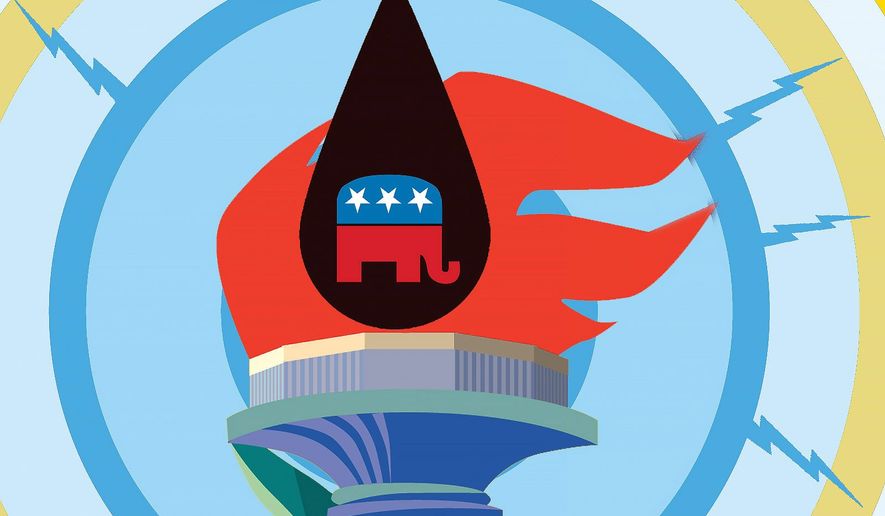OPINION:
Last week in Iowa, former President Donald Trump, evidently bored with issues of national consequence like the national debt, the anemic economy or the challenge posed by the current regime (the one in Beijing, not Washington), decided to alert Iowans that he is foursquare for more ethanol and that his chief GOP competitor, Florida Gov. Ron DeSantis, is not really on the ethanol bandwagon.
Leaving aside that ethanol is important to only a handful of wealthy farmers in Iowa and leaving aside that it is bad for the environment, bad for engines, bad economics, and just bad public policy, it is embarrassing that the Republicans are still talking about ethanol.
There are a lot more pressing energy and environmental issues that the candidates should address.
For starters, in the most sweeping environmental (and economic) land grab in our nation’s history, the Environmental Protection Agency wants to ban cars and trucks powered by gasoline and diesel. They are using the legislation that regulates the average miles per gallon that automaker fleets must achieve to implement this ban.
Everyone should be opposed to the Biden administration’s effort to ban cars and trucks. Candidates should also make it clear that the underlying statute needs to be pulled out root and branch.
These steps are the bare minimum.
How about the Inflation Reduction Act, which ladled more than $1 trillion in tax credits to wind and solar energy, batteries, electric vehicles and chargers for those vehicles? Again, at a minimum, candidates should explain how they intend to stop those tax credits once and for all and retrieve as much of the cash as they can.
Or energy production on federal land? Right now, the federal government allows energy exploration and production on less than 3% of the federal estate. That’s embarrassing. Presidential candidates should explain what they plan to do to increase that percentage and help regain our nation’s energy supremacy.
Along those same lines, it takes years to get energy projects permitted in the United States. Candidates should be bold in their thinking about how to solve that problem. We need to reform the federal Clean Water Act to prevent states from using their consultative role under that statute as a de facto veto of energy projects.
A bold approach would be to create a single agency in charge of permitting. The distribution of responsibility for permitting among several agencies guarantees that any particular permitting problem is difficult to remedy.
A single permitting agency would place accountability and responsibility for project review and permit issuance under one roof. It is no accident that pretty much every other country in the developed world has a single agency in charge of reviewing energy projects.
While we are thinking boldly, any meaningful nuclear renaissance in the United States is going to require a much better regulatory agency than the Nuclear Regulatory Commission. The simple truth is that the career team at the NRC has, at best, a limited interest in the future of nuclear energy and routinely adds pointless costs and delays to nuclear operations and potential new projects.
The White House’s recent renomination of Commissioner Jeff Baran is an excellent example of this problem. While his recent rhetoric has marginally improved, his voting record as a commissioner is not good.
We need to scrap the NRC.
The Biden administration has embedded climate change spending and climate change activists into every nook and cranny of the $6 trillion federal government. Presidential candidates should explain to us what they plan to do to root out that spending and those activists.
Finally, it would be enormously clarifying if candidates and campaigns stopped talking about “all of the above.” That particular language has been an unfortunate mantra of the Republican Party for a number of years. It confirms an assumption in many minds that things like wind and solar power and electric vehicles — which require significant subsidies from the government — are equivalent to material and powerful energy sources — oil, coal, natural gas, nuclear — that make the modern world possible.
Fifty years ago, oil, coal and natural gas produced more than 80% of all of the energy used in the United States. Last year — after decades of the government throwing hundreds of billions of dollars at alternative sources of energy — coal, oil and natural gas produced more than 80% of our nation’s energy.
Stop saying all of the above.
Presidential candidates should talk about important things and be serious about them. Please stop wasting everyone’s time talking about relatively insignificant issues.




Please read our comment policy before commenting.